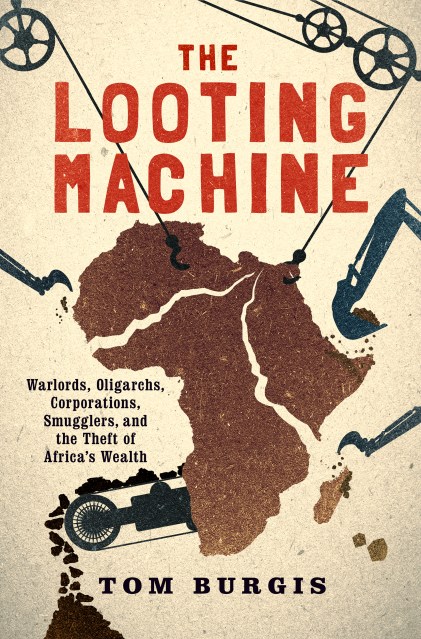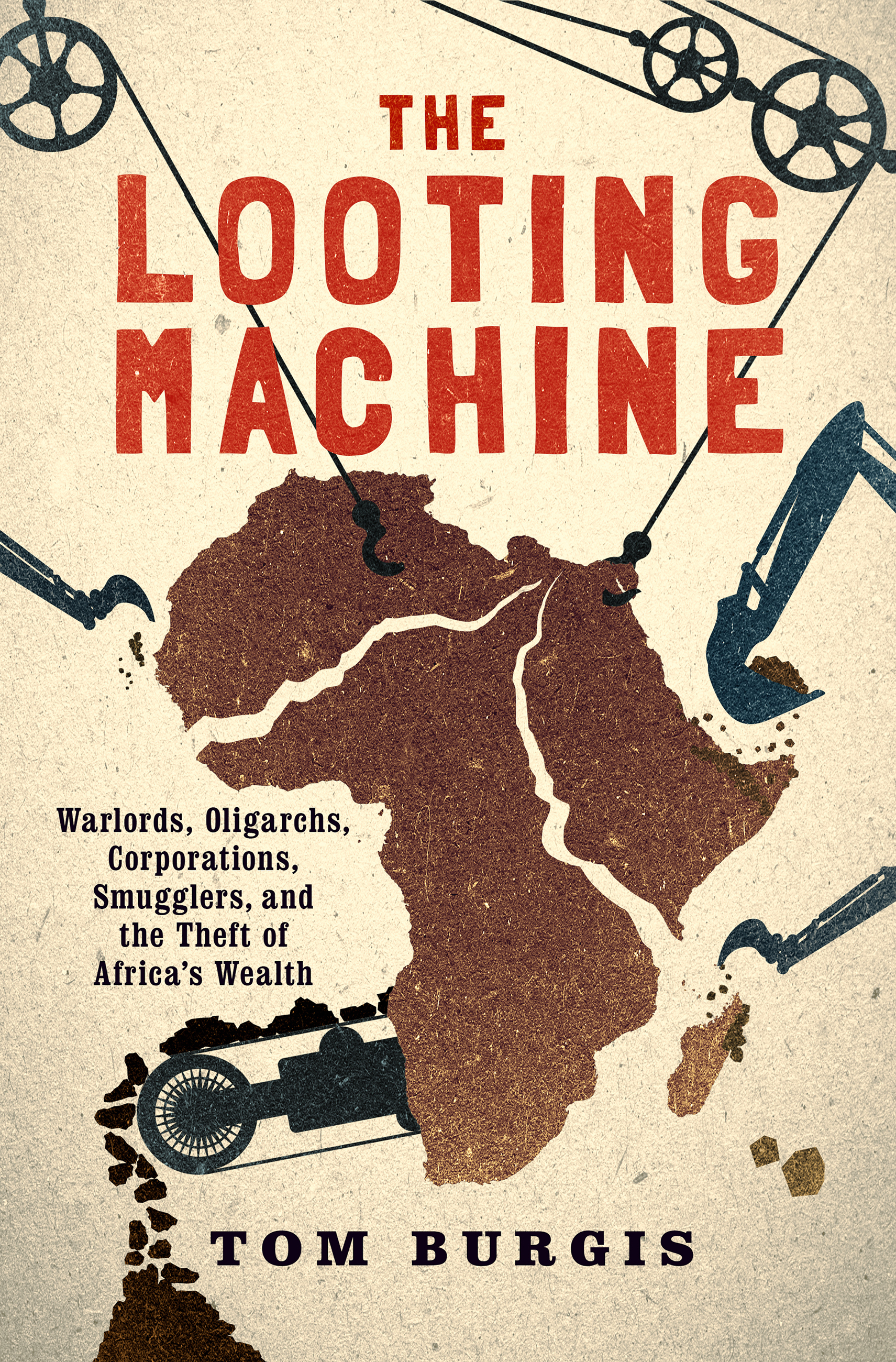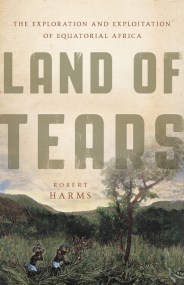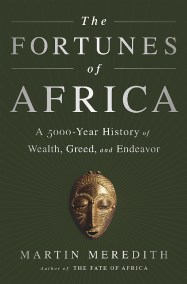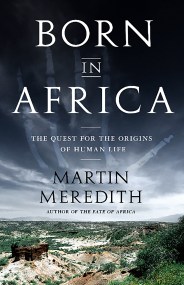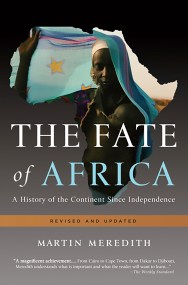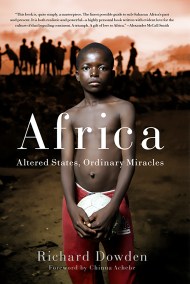Promotion
Use code BESTBOOKS24 for 25% off sitewide + free shipping over $35
By clicking “Accept,” you agree to the use of cookies and similar technologies on your device as set forth in our Cookie Policy and our Privacy Policy. Please note that certain cookies are essential for this website to function properly and do not require user consent to be deployed.
The Looting Machine
Warlords, Oligarchs, Corporations, Smugglers, and the Theft of Africa's Wealth
Contributors
By Tom Burgis
Formats and Prices
Price
$11.99Price
$15.99 CADFormat
Format:
- ebook $11.99 $15.99 CAD
- Trade Paperback $18.99 $23.99 CAD
This item is a preorder. Your payment method will be charged immediately, and the product is expected to ship on or around May 3, 2016. This date is subject to change due to shipping delays beyond our control.
Also available from:
The trade in oil, gas, gems, metals and rare earth minerals wreaks havoc in Africa. During the years when Brazil, India, China and the other “emerging markets” have transformed their economies, Africa’s resource states remained tethered to the bottom of the industrial supply chain. While Africa accounts for about 30 per cent of the world’s reserves of hydrocarbons and minerals and 14 per cent of the world’s population, its share of global manufacturing stood in 2011 exactly where it stood in 2000: at 1 percent.
In his first book, The Looting Machine, Tom Burgis exposes the truth about the African development miracle: for the resource states, it’s a mirage. The oil, copper, diamonds, gold and coltan deposits attract a global network of traders, bankers, corporate extractors and investors who combine with venal political cabals to loot the states’ value. And the vagaries of resource-dependent economies could pitch Africa’s new middle class back into destitution just as quickly as they climbed out of it. The ground beneath their feet is as precarious as a Congolese mine shaft; their prosperity could spill away like crude from a busted pipeline.
This catastrophic social disintegration is not merely a continuation of Africa’s past as a colonial victim. The looting now is accelerating as never before. As global demand for Africa’s resources rises, a handful of Africans are becoming legitimately rich but the vast majority, like the continent as a whole, is being fleeced. Outsiders tend to think of Africa as a great drain of philanthropy. But look more closely at the resource industry and the relationship between Africa and the rest of the world looks rather different. In 2010, fuel and mineral exports from Africa were worth 333 billion, more than seven times the value of the aid that went in the opposite direction. But who received the money? For every Frenchwoman who dies in childbirth, 100 die in Niger alone, the former French colony whose uranium fuels France’s nuclear reactors. In petro-states like Angola three-quarters of government revenue comes from oil. The government is not funded by the people, and as result it is not beholden to them. A score of African countries whose economies depend on resources are rentier states; their people are largely serfs. The resource curse is not merely some unfortunate economic phenomenon, the product of an intangible force. What is happening in Africa’s resource states is systematic looting. Like its victims, its beneficiaries have names.
Genre:
-
"A great scrapbook of exploitation. It is written in a way that will appeal to the general reader, but still interest specialists...Burgis has the good sense not to present [the cruel contrast between individual poverty and national wealth] in an alarmist way, but with an understatement that is far more powerful...The Looting Machine is in part a means of self-exoneration, a way of making amends to those he ultimately could not help...[in this book] has done a service to some of the world's poorest people." —Financial Times
"[An] excellent, finely reported book...The great value of The Looting Machine lies in its fresh detail, storytelling and the characters Burgis introduces. The Looting Machine is crammed with colour and lively investigative reporting." —Literary Review (UK)
"Revealing...Burgis explains lucidly how the oil and mineral bonanza subverts societies and corrupts western multinational companies trying to cash in...[He] is particularly acute in analysing how multinationals connive in this institutionalised theft…This intelligent book should give us all pause for thought when we fill our cars with petrol." —The Sunday Times (UK) -
"A rollercoaster read. Filled with vignettes on spooks, smugglers and kleptocratic warlords with suitcases of cash, it reads like a crime thriller, while at the same time being a well-researched, accessible account of the extractives industry; the privatisation of power in Africa and its impact on the continent's people." —African Arguments
"This fine book...catalogues the grotesque self-enrichment of the callous rulers of Angola, Congo, Equatorial Guinea and Nigeria—countries that should be immensely wealthy, but which remain poor, even by African standards. In each case, this theft of national treasure would be impossible without non-African facilitators. ... Burgis's book is essential to understanding why poverty, ignorance and conflict persist in Africa." —Independent Catholic News
"An excellent book. Despite Africa's impressive economic 5% growth rate, Tom Burgis ensures that we don't stop wondering who does what in Africa and how we are all party to what Western “investors” are up to. The post-colonial corruption and rape of African resource to the benefit of western consumption is still alive and horribly well.” —Jon Snow, presenter, Channel 4 News (UK) -
"[Burgis] makes a powerful case, through anecdote and evidence, that the dirty trade in raw materials serves individuals' own enrichment and the demands of oligarchic and state interests worldwide." —The Times (UK)
"After nine years reporting on Africa for the Financial Times, Tom Burgis exposes how the extractive industries have turned into a hideous looting machine…[an] informative book.” —The Guardian (UK)
"Burgis shows how even the World Bank is linked to this looting [of Africa, and he] makes an important case colourfully, convincingly and at times courageously as he confronts some of those involved in the pillaging." —Observer (UK)
"Brilliant…fascinating detail… The book lives up to its colourful subtitle – “Warlords, tycoons, smugglers and the systematic theft of Africa's wealth”. Showing the finesse and determination that has won him awards at the FT, and at considerable risk to his own well-being, Burgis tracks down and confronts the people at the centre of this plunder." —African Research Institute -
One of Financial Times' Books of the Year, 2015
"...a brave and defiant book." —New York Times Sunday Book Review
"...powerful new book." —Nicholas Kristof, New York Times columnist
“[an] impressive study…It is to Mr. Burgis's tremendous credit that he writes with such tenacity.” —Wall Street Journal
"[Burgis] presents a lively portrait of the rapacious 'looting machine'...a rich collage of examples showing the links between corrupt companies and African elites."—The Economist
“[Burgis] brings the tools of an investigative reporter and the sensibility of a foreign correspondent… [He] transcends the tired binary debate about the root causes of the continent's misery.”—Howard French, Foreign Affairs
"Essential for understanding the colonial Africa of the past and, even more so, the diverse Africa of today." –Library Journal
"A brave, excoriating exposé of the systematic ruination of resource-rich countries of Africa, leaving "penury and strife" for its millions of inhabitants...An earnest, eye-opening, important account for Western readers." —Kirkus Reviews STARRED
- On Sale
- May 3, 2016
- Page Count
- 368 pages
- Publisher
- PublicAffairs
- ISBN-13
- 9781610397483
Newsletter Signup
By clicking ‘Sign Up,’ I acknowledge that I have read and agree to Hachette Book Group’s Privacy Policy and Terms of Use
